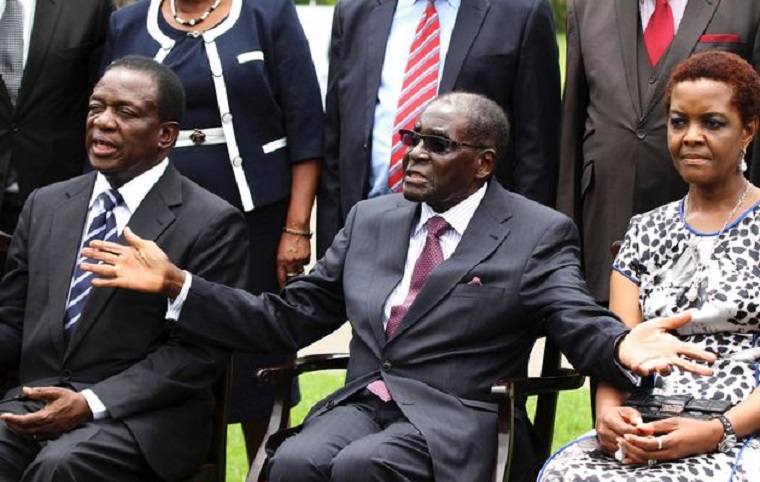Once impeachment proceedings began against the President, Mugabe finally resigned.
Amid wild celebrations across the country, Mnangagwa returned from exile and took over as President.
He subsequently won the presidential election in July 2018 on a reform platform, despite assassination attempts during the campaign, including a bomb that exploded at his rally in June last year.
Despite clear threats from remnants of Mugabe’s regime, Mnangagwa has continued the reform process.
He forgave Mugabe for his failings and allowed the former President and Grace to continue living in their opulent mansion in Harare.
Unlike many other former African dictators, from Muammar Gaddafi to Idi Amin and “Emperor” Bokassa, Mugabe was allowed to live out his years in peace at home.
Zimbabwe, meanwhile, has moved ahead with dismantling the negative aspects of Mugabe’s legacy.
The Mnangagwa government is reviewing 30 Mugabe-era bills and is in the process of upgrading them to Western standards.
These include the much-criticized Access to Information and Protection of Privacy Act (AIPPA) and the Public Order and Security Act (POSA).
The former was repealed last month and replaced by the Freedom of Information Bill, which seeks to uphold citizen’s rights to access information in line with the Zimbabwean Constitution and established international norms.
The latter is expected to be succeeded by the Maintenance of Peace and Order Bill (MOPA) soon, which aims at ensuring the freedom of assembly and modernizing the management of public gatherings.
The economy had suffered the most under Mugabe’s nearly four-decade rule. Mnangagwa inherited a struggling economy marked by hyperinflation, cash shortages, a budget deficit, endemic corruption, and a lack of monetary sovereignty.
US Secretary of State Mike Pompeo tweeted: “Robert Mugabe devastated a country with enormous potential…and catastrophically mismanaged the economy, turning the region’s breadbasket into one where much of the population requires international food assistance.”
Under Mnangagwa, Zimbabwe is now achieving tangible results with a budget surplus of $803.6 million between January and July 2019, and a positive current account for the first time since the adoption of the multi-currency regime in 2009.
And his government’s currency reform is supported by the International Monetary Fund (IMF), with whom Zimbabwe signed a two-year monitoring programme that could earn it debt forgiveness and future financing.
Secretary Pompeo seemed encouraged, tweeting: “Zimbabweans have long deserved better and their leadership has an opportunity to set the country on a much different path. We will continue to stand with the Zimbabwean people in their efforts to forge a better, more prosperous future.”
A key milestone illustrating how far Zimbabwe has traveled under Mnangagwa, is his reform programme, which includes land ownership, marking a departure from his predecessor’s anti-white stance.
Unlike Mugabe, who evicted white farmers and limited their land leases to five years, Mnangagwa publicly declared that white commercial farmers are now free to apply for land, extending 99-year leases to all farmers – independent of their skin color – and compensating white farmers.
This shows that with Mugabe’s death a shadow has been lifted from Zimbabwe, and Mnangagwa can now fully focus on restoring this southern African country’s prosperous future.
By Krishna Nag for Geopolitical Monitor
(184 VIEWS)


